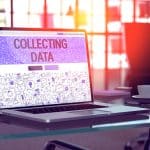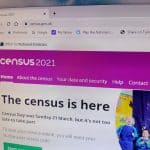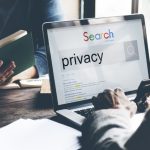32 percent of Americans are unaware of email tracking

A new survey from email service OnMail reveals that 93 percent of Americans think it's important that companies don't track their email, however, 32 percent don't know that leading email providers do it for advertising purposes.
Interestingly this view is remarkably consistent across age groups with 93 percent or more across all groups believing it's important that businesses don’t track the types of email you open.
Audacity bows to public pressure and says it will NOT collect telemetry data from users

Perceived invasions of privacy never go down well, as many software developers have discovered. Microsoft has received quite a backlash in response to telemetry in Windows 10, and the recent announcement that the audio editor Audacity was planning to do the same prompted a fierce reaction from users.
Audacity's new owner, Muse Group, has bowed to pressure from users and privacy advocates, announcing that the planned telemetry collection will no longer be going ahead. The company is blaming "communication mistakes" and public "misunderstanding" for the negative response to its previous data collection announcement.
Beyond Identity looks to a passwordless future

The death of the password has been predicted for a long time, yet it remains the most common way of logging into systems.
Identity management company Beyond Identity is looking to solve what is one of the biggest challenges in IT security and aims to re-establish trust in authentication chains by finally eliminating passwords as the weakest link.
Virtual room technology delivers secure customer interactions for the finance sector

One of the problems the finance and banking sector has had during the pandemic has been reduced branch access and the inability to hold face-to-face meetings.
Identity specialist OneSpan has introduced a technology called Virtual Room. Using this, financial institutions and their customers can digitally review and sign documents together without having to combine multiple tools and apps.
The normalization of data leaks and the privacy paradox [Q&A]

Is society becoming too accepting of data breaches? Do we claim to want more privacy but then continue to treat our own data in a cavalier fashion?
A recently leaked internal memo from Facebook revealed the company's plans to normalize data scraping leaks and change the way the public views these incidents.
Audio editor Audacity has the audacity to add telemetry collection -- and users are not happy

Whatever the reasons behind it, the inclusion of telemetry collection in software never goes down well -- as Microsoft knows all too well from the reaction to Windows 10 telemetry. Now, open-source audio editor Audacity has taken the decision to add such data capture into the software.
The development team stresses that telemetry exists solely to "identify product issues early", but there has already been quite a backlash. The sharing of data with Google and Yandex has not gone well.
New platform offers safe, self-service data sharing

In order to get the best value from data it's important that it's accessible to the right people in the business at the time they need it.
Data privacy specialist Privitar is announcing a new data provisioning platform that makes self-service data available safely, at scale, to the people who need it.
Facebook tops the data loss roll of shame

Data breaches have almost become a fact of everyday life, but there are still some that have greater impact than others.
Software company Intact has carried out an analysis of publicly available data to see which companies have suffered the most large-scale data breaches (involving more than 30,000 records or more) over the last 16 years.
Happy Identity Management Day

Every dog has its day as the saying goes and it's increasingly the case that every aspect of information technology has one too -- a day that is, not a dog.
Today is Identity Management Day, created by the The National Cybersecurity Alliance and the Identity Defined Security Alliance. It's the first one so you can forgive the lack of greetings cards and themed balloons in the shops but there is plenty of industry comment.
DuckDuckGo's Chrome extension blocks Google's controversial new FLoC tracking technique

That Google tracks internet usage is hardly news -- it how the company has operated for years, and it is central to its business model. But the search giant recently started testing a new technique for delivering targeted ads to people called Federated Learning of Cohorts (FLoC), and it's now enabled for millions of users by default.
While Google is insistent that FLoC is "privacy-preserving mechanism" and one that " enables ad selection without sharing the browsing behavior of individual users", the algorithm remains controversial for many. The cookie-free technique uses fingerprinting which the likes of the Electronic Frontier Foundation and other privacy groups have expressed great concern about. For anyone who would like to block Google's new tracking method, DuckDuckGo's Chrome extension is here to help.
Consumers show more interest in exercising privacy rights

Consumers are exercising their privacy rights -- to access, delete or stop the sale of their data -- under the California Consumer Privacy Act (CCPA) which came into force last year.
A new report from privacy platform DataGrail shows that consumers are increasingly concerned about their personal information and how it's used. It also reveals that the number of data subject requests (DSRs) companies receive varies wildly, depending on their privacy practices.
One in five healthcare files is open to all employees

A new report from Varonis reveals some startling statistics about healthcare data, with almost 20 percent of files open to all employees in an organization.
In addition the average healthcare organization has over 31,000 files -- including those that include HIPAA-protected information, financial data, and proprietary research -- open to everyone.
Digital first census raises security concerns

This year for the first time the UK's ten yearly census -- used to collect information to determine future government policy and spending -- is 'digital first' with people encouraged to fill in their returns online rather than use a paper form.
But research conducted by YouGov for security analytics and automation company Exabeam finds that many people are worried about how the data will be stored and used.
Slack rolls back controversial messaging feature within hours of its introduction

Messaging platform Slack yesterday rolled out a new feature called Connect DM that made it possible to send direct messages to anyone using the service -- regardless of whether they are part of the same company or workspace.
We say "made it possible" in the past tense because Slack was very quickly forced into something of an embarrassing partial u-turn. The company somehow failed to notice the potential for such a feature to be abused, and it was down to users and media outlets to point this out. Within hours, a key change was introduced to Connect DM to help eliminate spam and abuse.
Security and privacy knowledge is good but bad habits persist

New research from NordVPN finds that people around the world generally have good security and privacy knowledge, but still indulge in bad habits.
NordVPN ranked 21 countries by their performance, placing Germans at the top and -- perhaps surprisingly -- the Japanese at the bottom.
© 1998-2025 BetaNews, Inc. All Rights Reserved. About Us - Privacy Policy - Cookie Policy - Sitemap.